#which tbh makes it worse
Text
I put so much g.uzma art in my queue bc its so easy to find non shipping posts. Like I go to someone's blog who posts him a lot and like I will only find shipping posts maybe 1/10 times, and even then it's only a few, but with oswald I can look through someone's blog and 9/10 times 99% of the posts in his tag will be ship posts. It's honestly like people think he can't exist without being shipped with someone bc hes a queer man.
Idk it just seems like when there's a canon or popular fanon mlm ship, a majority of the content for one or both of the characters will be ship content and hardly anything of them that doesn't involve shipping. Oswald is an interesting character on his own, he doesn't need ed or any other character to be interesting or worth something
#cat.txt#i have honest to god seen him shipped with every man in the series#which tbh makes it worse#like i could get it if it was just with ed and maybe jim but no its with everyone#to the fandom he only exists to be shipped with a man
22 notes
·
View notes
Text
i was gonna play wow tonight with my sister but she never contacted me and i lost all my fucking addons because my stupid fucking ex took my hard drive and i forgot. thanks man
#vain.txt#violence killing murder its okay tho i went for a walk and feel normal and also sleepy i will simply sleep#its been like. christ 6 months since i went to visit my ex and he sat over my shoulder and made me like#delete genshin and all sorts of other cringe shit#well he didnt MAKE me but like. you know#tbh i never got all my kh games back from him so those are gone forever even tho they were a gift#which tbh makes it worse#im rambling. goodnight
1 note
·
View note
Text
No but like every time I think about Splinter and what he had to go through just to keep the boys alive, my heart hurts for him so badly. Is he perfect? No not at all, but none of them are and by god does he love his sons.
The fact that all of them are alive, and grew to thrive despite the circumstances surrounding them is a testament of how much Splinter loves his boys. He raised four babies following the most traumatic time of his life, all alone with nothing but the sewers to house them (to hide them.) I feel like he’s not given the credit he deserves for all he’s done.
And I get that it’s easy to hold up his flaws and faults when it comes to parenting, I myself like looking into them because flawed characters are super interesting and said flaws make them more realistic and engaging, but he tries, and again, so many others would have given up on the boys or failed along the way but Splinter didn’t.
He’s their father, for all his faults he did his damndest to make sure they survived.
#rottmnt#rise of the teenage mutant ninja turtles#rottmnt splinter#rise splinter#he’s not perfect as I’ve said#and he’s got a whole slew of flaws and faults#but he’s a person - we are all flawed#he loves his sons dearly dearly dearly even if he struggles along the way to show that#parenting is not easy! especially as a traumatized mutant who is forced to do it alone#side note but I think this is one of the reasons why it kiiiiiinda ruffles my feathers to see so many people assign parentification to Raph#and in turn make Splinter out to be way worse and way more distant than he is in canon?#like idk I just don’t see what so many others see ig but maybe that’s just me#i guess my thoughts are like- let parents have flaws without villainizing them?#they’re still parents even if they mess up?#we can discuss the repercussions of a parents actions on a child while not casting that parent as an awful person#parents are peopleeee#I could go on but yeahhh#idk it bothers me seeing splinter’s efforts undermined when he’s been through so much#idk if ppl realized this by now but I love me some flawed characters#tho I do think in this fandom the ones whose faults are discussed the most are like#Splinter mostly then Draxum then Leo#of the main cast#and in Splinters case in particular his faults are made to cover his good qualities which makes me sad#because he is SO INTERESTING#they’re all flawed characters and tbh so interesting because their flaws are ALSO their strengths in many aspects
357 notes
·
View notes
Text
I actually find it really bizarre and counter intuitive that clinically speaking, you cannot legally be diagnosed with a personality disorder until you're at least 18. The reason given for this is because "the personality has not fully developed before this age" like ???
Ah yes, my favorite strategy. Not diagnosing the problem until it's already been virtually cemented into your brain for life! Wouldn't it be easier (and more painless) to address the problem before it's fully developed?
#im also certain that the age that personality fully forms at is not a universally agreed upon number#like idk. maybe this raises less questions about age and more about the potential consequences of pathologizing personalities#it feels a little fucked up to me that some mental illness are 'just' mental illnesses while others are deemed a thing synonymous with you#and i can understand if some people with personality disorders do really heavily identify with their disorders#thats fine!#i also think the average person has a concept of personality which is relatively stagnant and thats just not realistic tbh#i mean if you think personality is stagnant then yours probably is so in rhat sense youre not wrong#but personality can absolutely change and i dont think it makes you a 'different person'#i think its a natural progression#anyways. got a little derailed but the point im trying to make is#lets find a way to give people with personality disorders a more realistic hope for recovery without invalidating them#and also lets maybe try to treat personality disorders preemptively so they don't get worse
224 notes
·
View notes
Text
(Basic context is that AU of Duel Desinties where the phantom impersonates Phoenix to get him found guilty of Clay's murder, I talk more under the cut abt it jkhlj)
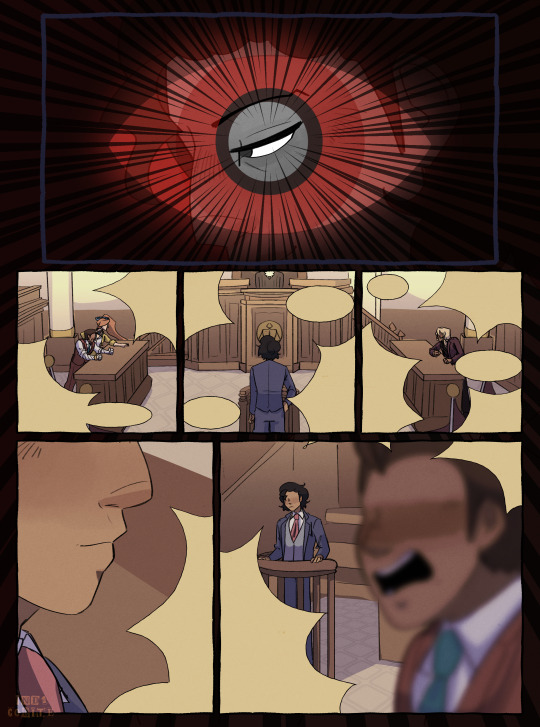
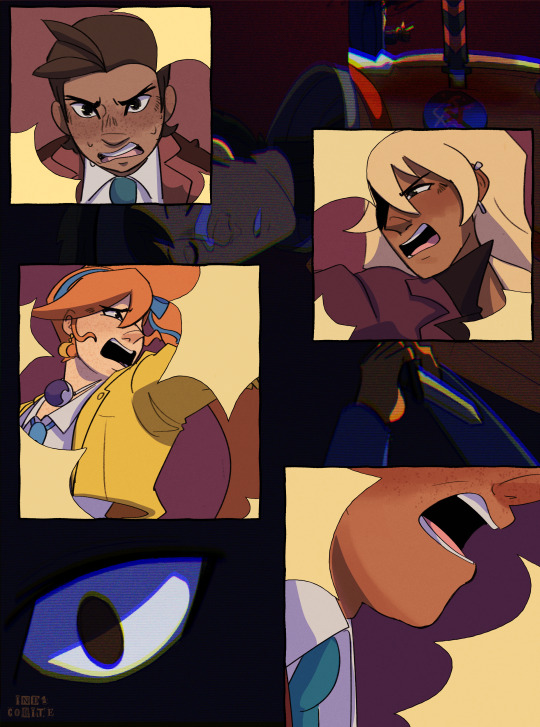
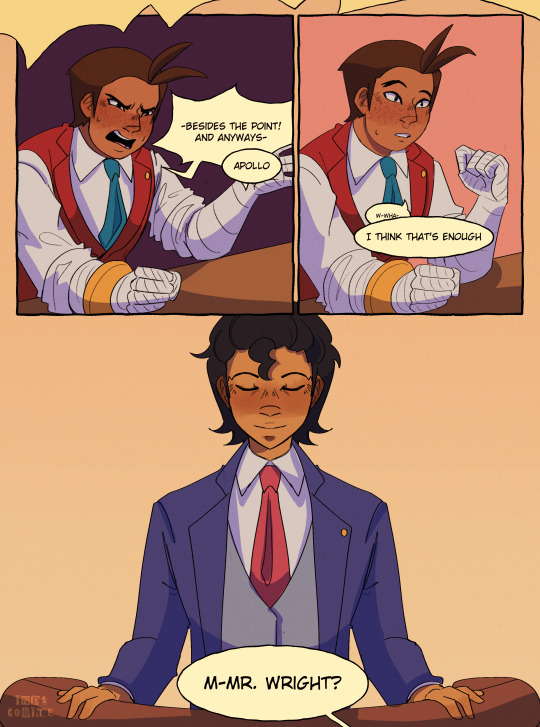

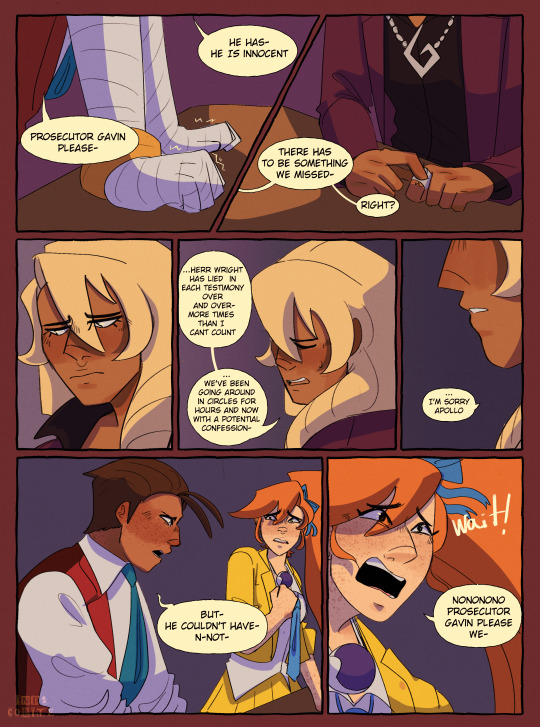

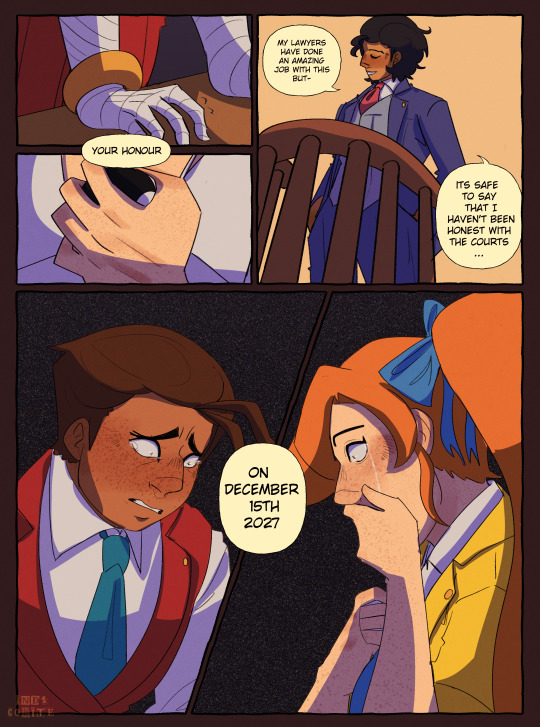
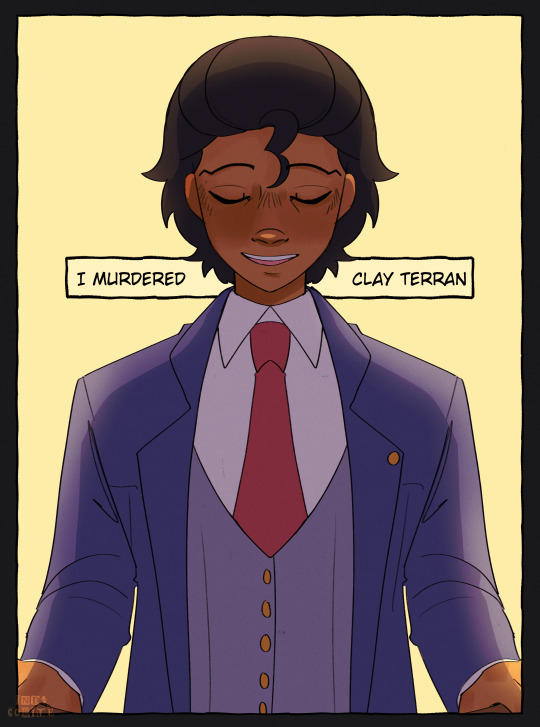
-Basically meant to be a parallel to turnabout trump, cause if you can have ONE boss get found guilty of murder, why not a second one?
-OK basically: everything in DD happens normally until like- a day before clays murder, Phoenix gets yoinked by the phantom somehow (he is still alive, just being held captive), Phantom is still Fulbright, but they've decided to be silly goofy (target Phoenix and get him found guilty of murder, escape police custody and then murder phoenix and make it seem like Phoenix accidentally died while on the run, thats why they didn't kill phoenix right away unlike the real Fulbright) there is an imposter amo-
-I dont have the logistics as to how this affects solving Metis's murder, and how it effects what evidence is used n whatnot and turnabout for tomorrow as a whole, so im just going nuts HGJKHLJ
-Originally I was actually imagining this taking place during turnabout for tomorrow and I wanted that case to be apollo v klavier instead of phoenix and edgeworth and thats why klav is in here instead of Simon (I decided that Simon got badly injured and couldn't stand in court for the retrial, so klavier was asked to step in)
-The courtroom bombing still happens the same way it does normally, but Apollo decides to take up the case again instead of taking a leave, instead of like, you know, healing from the traumatic event that just happened, turnabout countdown still happens as well
-Apollo and Athena do not find out about the phantom's existence until well after this trial, so they have no idea that Phoenix could've possibly been replaced, though simon, after hearing about the trial, might be suspicious about whether or not that was the real Phoenix
-The Phantom had been not only keeping an eye on Simon for a while, but was also stalking Phoenix and Edgeworth after they both started looking into UR-1, so they were able to impersonate phoenix so well that not even his own daughter thought that anything was up (though while Trucy did find him a *little* bit off, but she figured that it might've been the bombing that caused him to act ever so slightly weird, so she didn't pay much mind to it until she heard about his confession in court and realized it might've been because he possibly, ya know, killed someone)
-it's pretty much just switching Athena being framed for murder with Phoenix, and instead of the trial ending on a cliffhanger, it continues on (probably with Klavier insisting on it) ending with soloman being found innocent and Phoenix being declared guilty
-There's a couple days inbetween the end of the cosmic turnabout and the start of turnabout for tomorrow, so Athena, Apollo and Trucy all get a little bit to process the fact that "oh god my boss/my dad killed someone" (simons execution date is pushed back a bit in this au) and they probably get to talk with Klavier and eventually a lil bit with Simon after he gets out
-Im not sure how it all winds down in turnabout for tomorrow (Phoenix escaping and being at large is basically the perfect cover for the phantom to resume being fulbright for that trial) but they do eventually realize that the phoenix who confessed wasn't the real one and now there's a search on going to find out where the real one is being held captive, hes fineeee just ready to take a week long nap and a good vacation (along with every other waa member)
-I dont have anything else to add on rn but if you want to add something or just throw in a scenario feel free to!! this idea has been bouncing around my head for like a month now and Im very happy to finally show yall it
#ace attorney#ace attorney dual destinies#apollo justice#athena cykes#klavier gavin#phoenix wright#copycat au#indys art#apollo faints like- 0.5 seconds after the verdict is called which is very understandable#Apollo and Athenas horrible no good very bad court trial#and klavier isn't fairing any better tbh HJGKHL#no one is doing well at all and it gets worse before it gets better hjgkhl#Im both very excited but also TERRIFED posting this#I rarely try to actually write actual serious dialogue for characters cause im not a writer-so im hoping it's like- halfway decent HGJKH#I may be anxious as hell but Im going to be very brave and post this instead of- not doing that HJGKHL#I also tried to push myself a bit with this one so I included more panels to work on and coloured it#I like how it came out though!!#I hope u enjoy <3#also if something doesn't make sense blame it on the fact that I wrote the caption and these tags at like 2:30 am
506 notes
·
View notes
Text

family business
after the events of yakuza 0 they become business partners and run the best massage/real estate company the world has ever seen
#yakuza#yakuza 0#makoto makimura#tetsu tachibana#ryu ga gotoku#i painted ovr a drawing i had started in 2021 and its so much better now. its not even recognizable as the same artist tbh#which is reassuring bc i actually feel like my art has gotten worse since my rgg days and this shows that progress is not linear :)#nyways i thought the rendering looked a little leyendecker-y so i scribbled in a white background to match#i tried to make them look related but idk if i got it across. luckily the bar sega has set in that department is not hard to reach#rgg#etc etc#yakuza 0 spoilers#i guess#my art#fanart#oops hi i saw that pisssinger died and forgot to click post
194 notes
·
View notes
Text
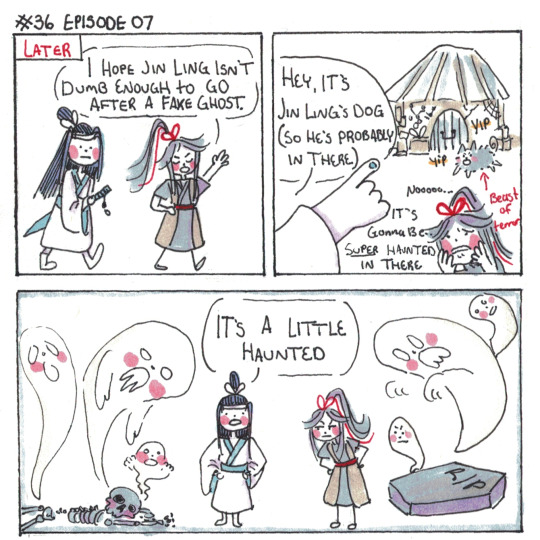
Whooooo could have predicted this?
[First] Prev <–-> Next
#Poorly drawn MDZS#mdzs#wei wuxian#lan wangji#fairy#I love that they go up a mountain to check out fake ghost rumours. It's everything I want out of a date (Nature hike & something haunted)#I just know these two are big hike fans (wwx prob 'gets tired' and 'needs to be carried' at the end)#(he doesn't need it he just wants to be held)#Its not super apparent but wwx is using 'gonna be haunted in there' as an excuse to not encounter the dog#thats on me for rushing this one though#the end result makes lwj look like one of those dad's that's like 'come on kids lets go check out these dark caves! Nothing creepy here!'#Which is a vibe he deserves to have. Maybe with a more blunt tone.#I don't know who would be a worse chaperone tbh. I think together they would be good but separate? Chaos.#Speaking of chaperoning...Jin Lin sure did wander off. Wonder where he went?#JC needs to invest in a stronger child leash 'cause his nephew keeps chewing through it and running off
821 notes
·
View notes
Text
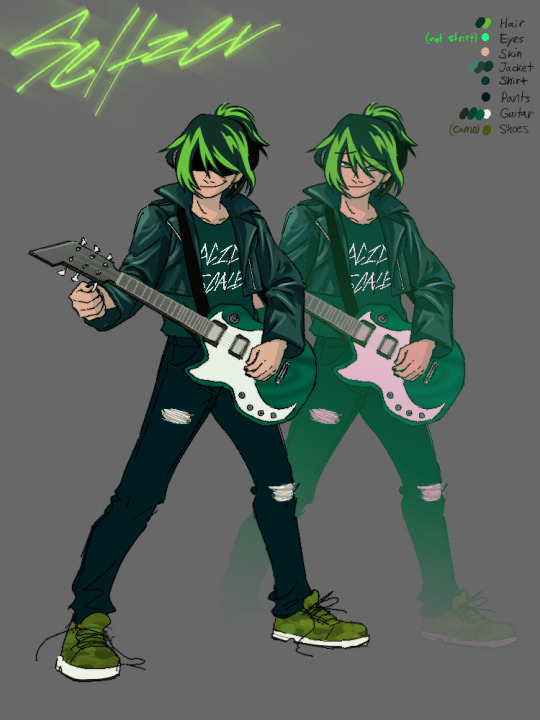
i get into hi fi rush and then proceed to make the most TOXIC ASS hfr oc. this is seltzer (he/they). he is Hashtag Problematic.
hes a precanon character who i created for the main purpose of exploring chais backstory which is FREE REAL ESTATE and subject chai to wretched things. making up a reason why chai is such a lonely ass independent guy at the start of the game AND SELF INDULGING AT THE SAME TIME (i love emotional whump). seltzer is red flag ass emotionally manipulative motherfucker. lmao
he is uhh. chais ex-"friend" that chai met at a venue during a local band performance in college. in quotes bc its a kinda complicated one sided deal. hes in a band called acid scale thats just a group of friends fucking around with instruments. their skills are mediocre and their music is DOGSHIT
somehow chai ends up hanging out with them. it doesnt end well
more sketches of the bastard below
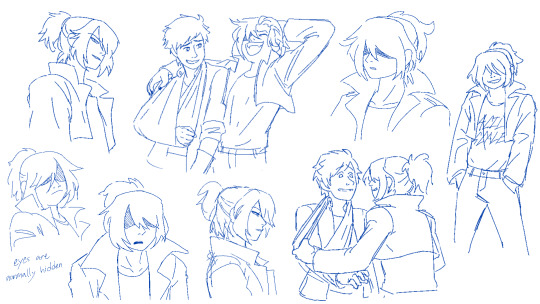
#they suck soooooooooooooooo much i love seltzer but tbh if i ever get a callout post written for me hes 100% goin on there as evidence#bc of the shit i wrote for his and chais story#which did half for the purpose of making him the worst person alive and the other half is bc im a sadist. and also im lusting over chai#anyways hes nonbinary but like he uses he like 90% of the time#tbh im worried bout sharing that story and being attacked for it but its like. man. yolo. ppl get paid to write worse for television#im just a dude on the internet.#either way ill do it tomorrow#hi fi rush oc#my art#my ocs#hi fi rush
168 notes
·
View notes
Text
Tim Drake has a weird fucking function
The thing about Tim that I find unique is that his life became SO MUCH WORSE after joining the heroing thing. Everybody else had a mid-to-shit life before becoming a hero/living with Bruce and mostly everybody (except Jason who LITERALLY DIED) had their life improved by being a hero/being Bruce's kid (or at least it is typically portrayed as such.
Tim had the exact opposite trajectory. His life wasn't perfect before he became Robin, but like...multi-millionaire/billionaire (canon is unclear, but he's within Gotham's upper-strata) kid with both natural intelligence + charisma and a bright future ahead of him and parents who were emotionally neglectful but nothing really beyond that (which is also a form of trauma, but all of the info we have indicates that the Drakes were no Arthur Brown or David Cain) and he still had other people he could rely on outside of them. He went to boarding school, which could be something horrible OR something amazing depending on your own thoughts/experiences. I grew up having a commute where we'd drive past a really pretty and rich af boarding school that literally everybody in our area DREAMED of going to, so to me the idea of going to boarding school sounds incredible but mileage may vary. Tim seems like the type of kid who would thrive in that though. Based on what we know in canon atm, his pre-robin life was fucking amazing.
And then he starts being the sidekick and working towards becoming Robin. His parents immediately get kidnapped and poison themselves through drinking tainted water; his mom dies and his dad is in a coma. This is not the fault of Robin, but Tim himself muses about the idea that Robin and dead parents are linked: to become Robin completely, you must lose your parents. And with how fate/destiny/canon events can operate in comics universes, maybe he isn't that far off. Once his dad wakes up, their relationship becomes strained as the man grieves the loss of his wife and realizes that his son has been doing vigilantism as a hobby. It is unclear exactly how good of a parent Jack was before the incident, but the results of Tim's involvement with the Robin mantle has definitely made things worse between father and son. Jack will also die within quick succession of 2 of Tim's best friends, his girlfriend, and his other father. He will also effectively lose like 1/2 his loved ones in the fallout of all of that mess including: his older brother, his other friends (both civilian and superhero), and the stepmother with whom he shared what I would argue is his best parent-child relationship (Dana also may have died, but it's left unclear). He has stopped pursuing higher education (the moment he even applied for college he 'died', and it seems he hasn't made another attempt since) and if he wasn’t a major focus of the media before he sure is now. He tries to quit briefly (in fact he initially was planning on quitting once someone more suited came along) and cannot bring himself to do so. Even when he does manage to get away for a while, his superhero life impacts the pre-robin life he is trying to go back to. Leaving is an impossibility, this is all there is for him now. He also isn’t allowed to make mistakes anymore, not when lives hang in the balance. The one who enforces that impossible standard the most (besides Bruce depending on who's writing) is himself. He’s got TRAUMA now and people want to hurt him constantly. He is constantly questioning his own sanity and morality and place in the world. He almost dies like every month. Tim grows colder and less grounded, he is becoming both a better and a worse version of himself at the same time. He’s saving lives in the same few issues as he’s setting up a Saw movie plot for the man who killed his father. He is haunted by the ghosts of his past and the looming figure of his future. His life becomes SO MUCH FUCKING WORSE after he becomes Robin. Some of it is the fault of others, some is the fault of circumstance, and some of it is due to his own actions. But basically all of Tim's worst traumas and life-changing moments are either tied to or caused by Robin. Dick's parents would still be dead, Jason would still be living on the streets, Stephanie would still have Arthur Brown for a father and a lot of other things that deserve their own posts/IDK if they've been retconned, and Damian would still have been raised in the eco-cult where death is a constant. Those are life circumstances that occur without the involvement of Robin, the only one who even needs Bruce involved at all in their series of events is Damian. But Tim? All of what is considered his 'worst' moments occur after he assumes the role.
This idea is what I find the coolest and most fascinating about Tim as a character. Being a hero is usually portrayed as either an outright awesome thing or a righteous duty that one must fulfill or (maybe in a grimmer and/or more grounded story) a sacrifice to your interpersonal relationships/mental health that is made for the greater good. For Tim, being a superhero actively ruined his life (both because of the general circumstances surrounding being a kid vigilante and the choices he made as part of that role). It's never portrayed that way in canon because we need to come out of issues going 'wow being a superhero is so cool! I'm gonna buy the next issue!', but when you just look at Tim's life literally everything really bad that we know of occurred after he became Robin.
#tim drake#batman#batfamily#Red Robin 2009#Red Robin#idk this is just why I think Tim is a really interesting character. I'm probably not being as articulate as I could be but it's tumblr so#I've had a lot of people say that they think Tim is the most boring robin. And I disagree because I don't think any of them are boring#but it is definitely the hardest to explain what makes Tim interesting to people with only a cursory knowledge#and it doesn't help that a lot of what makes Tim cool relies on his relationships with OTHER characters.#like you can explain why Jason is cool and interesting without even mentioning Batman if you really want to.#with Tim you need a fucking relationship chart and like 11 asterisks whenever anything involving the 'Bruce is dead' era is involved#so I just felt like typing up why I think he can really work as an exploration of somebody who straight up got WORSE after heroing#granted it's never actually stated because DC needs to make money. and tbh the closest we've ever gotten is Red Robin 2009#which I feel is dubiously canon at best at this rate. was it retconned? did any of it happen in the current universe?
56 notes
·
View notes
Text
Malleyuu meta ramblings
Day three of Book 7 and I still couldn't believe how far Malleus would "subtly" push to ship himself with the player like damn they always find a way to imply a soulmate narrative with him.
I've never seen aggressive teasing to this extent tbh. Refusing to outright say he's their main love interest (and to an extent the only love interest) but liberally seasoning his entire character with flirtatious lines and suggestive choice of actions and an unbelievable romantically-driven background... I'm speechless tbh. And if the crazy theories about his dad and his relation to Grim are true, they're also gunning hard to plant him as both the center of the world and forging a strong inexplicable connection between him and the player.
#he gets worse every update#i don't know how he'd get worse after this tbh#unless they make him confess his love which will literally change the game's genre#twisted wonderland#ventique rambles#malleus draconia#malleus x reader
349 notes
·
View notes
Text
i know i have talked about this many times in detail by now, but the whole "shiekah tech just vanished" totk interview reveal will grind my gears anytime i think about the franchise for i dont know how much time to come
its such a lie to your face i just cant help but feel insulted, bc no, its NOT all gone and vanished, you kept the few parts convenient to keep and got rid of all that could have even vaguely distracted from the new shiny sonau stuff, at least be honest and just say you didnt think about it needing any sort of reason, say you dont care, say there were writing or staffing troubles, say you had other priorities, say you didnt think people cared about continuity (lol) even between two games taking place in the same world no 10 years apart, say you just wanted to generate money but even more, idk, id much rather have them be honest about it than lie like that bc this way it makes it feel like they think im stupid, like id just gobble up and be happy with anything they say to get me to shut up and keep spending money
(╯‵□′)╯︵┻━┻
#ganondoodles talks#zelda#totk#ganondoodles rants#not really a rant tbh#but man#i just keep coming back to this point#bc its just ... so insulting#and you cant argue either that he meant the old shiekah stuff vanished while newly built stuff was still there#bc the old og guardian on the hateno institute is still there#the teleport pad as well#both of which WERE old#but then the telescope is gone and the furnace and the upgrade stone thingy- isnt even the easter egg prototype titan model gone too??#and the big furnace and the lanterns are all gone#and it all had to stay for a while after botws end bc we still see it and purah also had enough time to manage to get herself aged up again#and the whole it vanshied bc it knew the calamtiy was gone interview part makes it even worse#bc the SOURCE OF IT IS STILL THERE#AND WHY DIDNT IT VANISH A HUNDRED YEARS AGO THEN#THEY WON THAT TIME TOO#and that everyone that was in any way interested in shiekah tech just doesnt care anymore#again i dont think even the words shiekah tech are said a single time#aside from MAYBE the school thing about the calamity#which is another can of worms tbh#and no vah ruta stopping to work isnt the same as vanishing#i always figured it was bc the spirits of the pilots were now all fully gone and without a pilot as its power source yeah it might stop#bc that makes SENSE#i want to know so badly why this all turned out like this#they have talked about struggles during development before so why not here#is there somethign they try to cover up or did they ACTUALLY think this was good#bc i cant believe that
93 notes
·
View notes
Note
Hey! It has been on my mind lately and i just wanna ask..idk if it would make sense but i just noticed that nowadays ppl cant separate the authors and their books (ex. when author wrote a story about cheating and ppl starts bashing the author for romanticizing cheating and even to a point of cancelling the author for not setting a good/healthy example of a relationship) any thoughts about it?
I have many, many thoughts on this, so this may get a little unwieldy but I'll try to corall it together as best I can.
But honestly, I think sometimes being unable to separate the author from the work (which is interesting to me to see because some people are definitely not "separating" anything even though they think they are; they just erase the author entirely as an active agent, isolate the work, and call it "objectivity") has a lot to do with some people being unable to separate the things they read from themselves.
I'm absolutely not saying it's right, but it's an impulse I do understand. If you read a book and love it, if it transforms your life, or defines a particular period of your life, and then you find out that the author has said or done something awful--where does that leave you? Someone awful made something beautiful, something you loved: and now that this point of communion exists between you and someone whose views you'd never agree with, what does that mean for who you are? That this came from the mind of a person capable of something awful and spoke to your mind--does that mean you're like them? Could be like them?
Those are very uncomfortable questions and I think if you have a tendency to look at art or literature this way, you will inevitable fall into the mindset where only "Good" stories can be accepted because there's no distinction between where the story ends and you begin. As I said, I can see where it comes from but I also find it profoundly troubling because i think one of the worst things you can do to literature is approach it with the expectation of moral validation--this idea that everything you consume, everything you like and engage with is some fundamental insight into your very character as opposed to just a means of looking at or questioning something for its own sake is not just narrow-minded but dangerous.
Art isn't obliged to be anything--not moral, not even beautiful. And while I expend very little (and I mean very little) energy engaging with or even looking at internet / twitter discourse for obvious reasons, I do find it interesting that people (online anyway) will make the entire axis of their critique on something hinge on the fact that its bad representation or justifying / romanticizing something less than ideal, proceeding to treat art as some sort of conduit for moral guidance when it absolutely isn't. And they will also hold that this critique comes from a necessarily good and just place (positive representation, and I don't know, maybe in their minds it does) while at the same time setting themselves apart from radical conservatives who do the exact same thing, only they're doing it from the other side.
To make it abundantly clear, I'm absolutely not saying you should tolerate bigots decrying that books about the Holocaust, race, homophobia, or lgbt experiences should be banned--what I am saying, is that people who protest that a book like Maus or Persepolis is going to "corrupt children", and people who think a book exploring the emotional landscape of a deeply flawed character, who just happens to be from a traditionally marginalised group or is written by someone who is, is bad representation and therefore damaging to that community as a whole are arguments that stem from the exact same place: it's a fundamental inability, or outright refusal, to accept the interiority and alterity of other people, and the inherent validity of the experiences that follow. It's the same maniacal, consumptive, belief that there can be one view and one view only: the correct view, which is your view--your thoughts, your feelings.
There is also dangerous element of control in this. Someone with racist views does not want their child to hear anti-racist views because as far as they are concerned, this child is not a being with agency, but a direct extension of them and their legacy. That this child may disagree is a profound rupture and a threat to the cohesion of this person's entire worldview. Nothing exists in and of and for itself here: rather the multiplicity of the world and people's experiences within it are reduced to shadowy agents that are either for us or against us. It's not about protecting children's "innocence" ("think of the children", in these contexts, often just means "think of the status quo"), as much as it is about protecting yourself and the threat to your perceived place in the world.
And in all honestt I think the same holds true for the other side--if you cannot trust yourself to engage with works of art that come from a different standpoint to yours, or whose subject matter you dislike, without believing the mere fact of these works' existence will threaten something within you or society in general (which is hysterical because believe me, society is NOT that flimsy), then that is not an issue with the work itself--it's a personal issue and you need to ask yourself if it would actually be so unthinkable if your belief about something isn't as solid as you think it is, and, crucially, why you have such little faith in your own critical capacity that the only response these works ilicit from you is that no one should be able to engage with them. That's not awareness to me--it's veering very close to sticking your head in the sand, while insisting you actually aren't.
Arbitrarily adding a moral element to something that does not exist as an agent of moral rectitude but rather as an exploration of deeply human impulses, and doing so simply to justify your stance or your discomfort is not only a profoundly inadequate, but also a deeply insidious, way of papering over your insecurities and your own ignorance (i mean this in the literal sense of the word), of creating a false and dishonest certainty where certainty does not exist and then presenting this as a fact that cannot and should not be challenged and those who do are somehow perverse or should have their characters called into question for it. It's reductive and infantilising in so many ways and it also actively absolves you of any responsibility as a reader--it absolves you of taking responsibility for your own interpretation of the work in question, it absolves you of responsibility for your own feelings (and, potentially, your own biases or preconceptions), it absolves you of actual, proper, thought and engagement by laying the blame entirely on a rogue piece of literature (as if prose is something sentient) instead of acknowledging that any instance of reading is a two-way street: instead of asking why do I feel this way? what has this text rubbed up against? the assumption is that the book has imposed these feelings on you, rather than potentially illuminated what was already there.
Which brings me to something else which is that it is also, and I think this is equally dangerous, lending books and stories a mythical, almost supernatural, power that they absolutely do not have. Is story-telling one of the most human, most enduring, most important and life-altering traditions we have? Yes. But a story is also just a story. And to convince yourself that books have a dangerous transformative power above and beyond what they are actually capable of is, again, to completely erase people's agency as readers, writers' agency as writers and makers (the same as any other craft), and subsequently your own. And erasing agency is the very point of censors banning books en masse. It's not an act of stupidity or blind ignorance, but a conscious awareness of the fact that people will disagree with you, and for whatever reason you've decided that you are not going to let them.
Writers and poets are not separate entities to the rest of us: they aren't shamans or prophets, gifted and chosen beings who have some inner, profound, knowledge the rest of us aren't privy to (and should therefore know better or be better in some regard) because moral absolutism just does not exist. Every writer, no matter how affecting their work may be, is still Just Some Guy Who Made a Thing. Writing can be an incredibly intimate act, but it can also just be writing, in the same way that plumbing is plumbing and weeding is just weeding and not necessarily some transcendant cosmic endeavour in and of itself. Authors are no different, when you get down to it, from bakers or electricians; Nobel laureates are just as capable of coming out with distasteful comments about women as your annoying cousin is and the fact that they wrote a genre-defying work does not change that, or vice-versa. We imbue books with so much power and as conduits of the very best and most human traits we can imagine and hope for, but they aren't representations of the best of humanity--they're simply expressions of humanity, which includes the things we don't like.
There are some authors I love who have said and done things I completely disagree with or whose views I find abhorrent--but I'm not expecting that, just because they created something that changed my world, they are above and beyond the ordinarly, the petty, the spiteful, or cruel. That's not condoning what they have said and done in the least: but I trust myself to be able to read these works with awareness and attention, to pick out and examine and attempt to understand the things that I find questionable, to hold on to what has moved me, and to disregard what I just don't vibe with or disagree with. There are writers I've chosen not to engage with, for my own personal reasons: but I'm not going to enforce this onto someone else because I can see what others would love in them, even if what I love is not strong enough to make up for what I can't. Terrance Hayes put perfectly in my view, when he talks about this and being capable of "love without forgiveness". Writing is a profoundly human heritage and those who engage with it aren't separate from that heritage as human because they live in, and are made by, the exact same world as anyone else.
The measure of good writing for me has hardly anything to do with whatever "virtue" it's perceived to have and everything to do with sincerity. As far as I'm concerned, "positive representation" is not about 100% likeable characters who never do anything problematic or who are easily understood. Positive representation is about being afforded the full scope of human feelings, the good, the bad, and the ugly, and not having your humanity, your dignity, your right to exist in the world questioned because all of these can only be seen through the filter of race, or gender, religion, or ethicity and interpreted according to our (profoundly warped) perceptions of those categories and what they should or shouldn't represent. True recognition of someone's humanity does not lie in finding only what is held in common between you (and is therefore "acceptable", with whatever you put into that category), but in accepting everything that is radically different about them and not letting this colour the consideration you give.
Also, and it may sound harsh, but I think people forget that fictional characters are fictional. If I find a particularly fucked up relationship dynamic compelling (as I often do), or if I decide to write and explore that dynamic, that's not me saying two people who threaten to kill each other and constantly hurt each other is my ideal of romance and that this is exactly how I want to be treated: it's me trying to find out what is really happening below the surface when two people behave like this. It's me exploring something that would be traumatizing and deeply damaging in real life, in a safe and fictional setting so I can gain some kind of understanding about our darker and more destructive impulses without being literally destroyed by them, as would happen if all of this were real. But it isn't real. And this isn't a radical or complex thing to comprehend, but it becomes incomprehensible if your sole understanding of literature is that it exists to validate you or entertain you or cater to you, and if all of your interpretations of other people's intentions are laced with a persistent sense of bad faith. Just because you have not forged any identity outside of this fictional narrative doesn't mean it's the same for others.
Ursula K. le Guin made an extremely salient point about children and stories in that children know the stories you tell them--dragons, witches, ghouls, whatever--are not real, but they are true. And that sums it all up. There's a reason children learning to lie is an incredibly important developmental milestone, because it shows that they have achieved an incredibly complex, but vitally important, ability to hold two contradictory statements in their minds and still know which is true and which isn't. If you cannot delve into a work, on the terms it sets, as a fictional piece of literature, recognize its good points and note its bad points, assess what can have a real world impact or reflects a real world impact and what is just creative license, how do you possible expect to recognize when authority and propaganda lies to you? Because one thing propaganda has always utilised is a simplistic, black and white depiction of The Good (Us) and The Bad (Them). This moralistic stance regarding fiction does not make you more progressive or considerate; it simply makes it easier to manipulate your ideas and your feelings about those ideas because your assessments are entirely emotional and surface level and are fuelled by a refusal to engage with something beyond the knee-jerk reaction it causes you to have.
Books are profoundly, and I do mean profoundly, important to me-- and so much of who I am and the way I see things is probably down to the fact that stories have preoccupied me wherever I go. But I also don't see them as vital building blocks for some core facet or a pronouncement of Who I Am. They're not badges of honour or a cover letter I put out into the world for other people to judge and assess me by, and approve of me (and by extension, the things I say or feel). They're vehicles through which I explore and experience whatever it is that I'm most caught by: not a prophylactic, not a mode of virtue signalling, and certainly not a means of signalling a moral stance.
I think at the end of the day so much of this tendency to view books as an extension of yourself (and therefore of an author) is down to the whole notion of "art as a mirror", and I always come back to Fran Lebowitz saying that it "isn't a mirror, it's a door". And while I do think it's important to have that mirror (especially if you're part of a community that never sees itself represented, or represented poorly and offensively) I think some people have moved into the mindset of thinking that, in order for art to be good, it needs to be a mirror, it needs to cater to them and their experiences precisely--either that or that it can only exist as a mirror full stop, a reflection of and for the reader and the writer (which is just incredibly reductive and dismissive of both)--and if art can only exist as a mirror then anything negative that is reflected back at you must be a condemnation, not a call for exploration or an attempt at understanding.
As I said, a mirror is important but to insist on it above all else isn't always a positive thing: there are books I related to deeply because they allowed me to feel so seen (some by authors who looked nothing like me), but I have no interest in surrounding myself with those books all the time either--I know what goes on in my head which is precisely why I don't always want to live there. Being validated by a character who's "just like me" is amazing but I also want--I also need-- to know that lives and minds and events exist outside of the echo-chamber of my own mind. The mirror is comforting, yes, but if you spend too long with it, it also becomes isolating: you need doors because they lead you to ideas and views and characters you could never come up with on your own. A world made up of various Mes reflected back to me is not a world I want to be immersed in because it's a world with very little texture or discovery or room for growth and change. Your sense of self and your sense of other people cannot grow here; it just becomes mangled.
Art has always been about dialogue, always about a me and a you, a speaker and a listener, even when it is happening in the most internal of spaces: to insist that art only ever tells you what you want to hear, that it should only reflect what you know and accept is to undermine the very core of what it seeks to do in the first place, which is establish connection. Art is a lifeline, I'm not saying it isn't. But it's also not an instruction manual for how to behave in the world--it's an exploration of what being in the world looks like at all, and this is different for everyone. And you are treading into some very, very dangerous waters the moment you insist it must be otherwise.
Whatever it means to be in the world, it is anything but straightforward. In this world people cheat, people kill, they manipulate, they lie, they torture and steal--why? Sometimes we know why, but more often we don't--but we take all these questions and write (or read) our way through them hoping that, if we don't find an answer, we can at least find our way to a place where not knowing isn't as unbearable anymore (and sometimes it's not even about that; it's just about telling a story and wanting to make people laugh). It's an endless heritage of seeking with countless variations on the same statements which say over and over again I don't know what to make of this story, even as I tell it to you. So why am I telling it? Do I want to change it? Can I change it? Yes. No. Maybe. I have no certainty in any of this except that I can say it. All I can do is say it.
Writing, and art in general, are one of the very, very, few ways we can try and make sense of the apparently arbitrary chaos and absurdity of our lives--it's one of the only ways left to us by which we can impose some sense of structure or meaning, even if those things exists in the midst of forces that will constantly overwhelm those structures, and us. I write a poem to try and make sense of something (grief, love, a question about octopuses) or to just set down that I've experienced something (grief, love, an answer about octpuses). You write a poem to make sense of, resolve, register, or celebrate something else. They don't have to align. They don't have to agree. We don't even need to like each other much. But in both of these instances something is being said, some fragment of the world as its been perceived or experienced is being shared. They're separate truths that can exist at the same time. Acknowledging this is the only means we have of momentarily bridging the gaps that will always exist between ourselves and others, and it requires a profound amount of grace, consideration and forbearance. Otherwise, why are we bothering at all?
#this is so much longer than i intended but yeah. those are my very long 2 cents#tbh i also think social media makes it worse in a way especially bc “transparency” has become a form of public vetting which is insane to m#me* transparency and honesty are not the same thing ans its ludicrous that this is where we're at and while we all have to live with this#demand for transparency i do think it affects writers differently bc the whole art as mirror thing comes to the fore in this argument#why would you sit with your feelings about a book when its easier and more accessible for you to @ the authors twitter handle#but anyway#ask#anonymous#book talks
399 notes
·
View notes
Note
You stated all my thoughts about White. Up until this point he has no stakes in this story. They better do something with his character quick because there are only three eps left and I could not care less about whether he lives or dies right now. I even want Fluke’s selfish crazy ass to survive more than White at this point.
they just aren't giving us anything about white. as far as we know, he's just boyfriend. he has no ties with non and has done nothing to harm him or the investigation. he just doesn't have many ties to the main story with non. let's be honest. it makes him a little boring and bland. i kinda care about him cause he seems nice. he's innocent. there's nothing wrong with his place in the story and i feel like he does have his seat at the table even if he's not involved with non. he plays detective with phee and tan and he does his best with trying to contact the outside world. we see how fluke is going crazy through how he interacts with white. we get to see tee fleshed out a little through white.
i just don't think it would be satisfying to leave him as final girl. i mean, it's just too cookie cutter to leave the "innocent" one alive. this doesn't really seem like a story that's so rigid in its sense of morality. a lot of the characters we see are very much not black and white. you have phee who cares very much for non, but sleeps with jin and, at least the way i see it, kind of likes him too. he's on his mission to seek the truth about non or kinda get revenge but he gets distracted and veers off course. we have tee who is a major bully and does fucked up things to non which could have landed him in jail and did land him into deep shit with his uncle, but he also ultimately asked for mercy for non and tee is dealing with a lot of shit at home. i mean, he has the health of his dad on his shoulders (if i remember correctly) and his uncle was stepping on his neck threatening him with money or the lack of it. i am a tee hater but when i really think of his situation, i can't help but feel bad for the guy and everything that he's going through. and i love phee, but man was it fucked up to sleep with jin without knowing the full story.
with all of these complex and interesting characters to really dig into and analyze, white just seems bland in comparison and i feel like that's probably the point of his character. i mean, maybe i just haven't caught onto any foreshadowing, but white isn't going to turn out to be some great mastermind or part of the conspiracy with phee and tan in the end. that would feel like such shitty writing. i think this is more or less confirmed by white getting the hallucination of boils on his skin. he's not in on the plan and he didn't use this to throw off suspicion like tan did.
i think he works best as a tragic death. he would work best as collateral in the end. he has done all that he can and that is still not enough sometimes. you can do all the right things but circumstances get you sometimes. that's just what life is.
white is not final girl material. this story ultimately isn't about him, and i think that's what seals his fate. no part of seeing him coming out of the woods bloody and crying would be satisfying as an ending and would honestly create the most basic ass theme. it would make me actually angry if the "innocent" one got out alive. in a show that works so hard at being morally complex, that is such a slap in the face as an ending. it sends the most basic theme of "if you do bad things, bad things happen to you, and if you do good things, good things happen to you." the story would say nothing interesting. it is such a tired theme that doesn't take into acount the cemplexities and nuances of life.
i believe dff will do better than that. i think it will give us a story that leaves all of us speechless and satisfied. white being the final girl will not give us that.
sorry anon that i unloaded all of this on you. i never really got into it in my original post, and i still didn't fully get into it here but this was getting long.
#white dff#dff#dff the series#dead friend forever#dead friend forever the series#tan dff#new dff#phee dff#non dff#tee dff#teewhite#fluke dff#i've got a lot of thoughts and feelings about this show#and i've been seeing a lot of shit takes on here which makes it worse#but tell me your thoughts#who do you think is final girl?#personally i feel it's jin#he's just been such a focus and he was final girl in the short film#jin final girl explanation could be its own post tbh
26 notes
·
View notes
Text

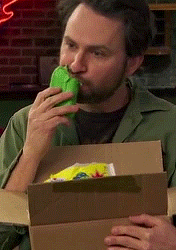
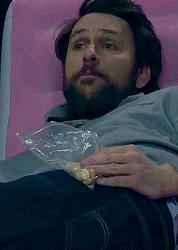

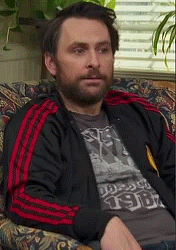

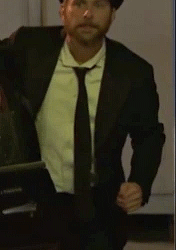
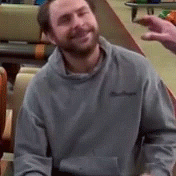
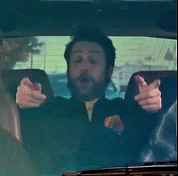
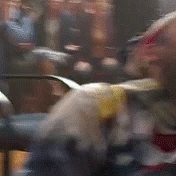
charlie kelly - season 16
#iasip#it's always sunny in philadelphia#charlie kelly#charlie day#my gifs#s16 spoilers#sorry if this sucks photoshop keeps deleting all my settings :(#gonna be real... i know they were prob trying to balance things out bc s15 had a bunch of charlie stuff#but man there werent enough good charlie moments this season :(#(or at least not stuff i really enjoyed)#i have a dee one coming up tomorrow (not even gonna get into how much worse this season was for her)#& then i think after that im taking a sunny gifmaking break for a bit#i love making these (and im planning on coming to them eventually) but theyre a lot of work#and tbh ive been thinking i need to spend less time on tumblr/sunny stuff bc im just not having as much fun as i used to#& i know i'll enjoy it again eventually tho bc my brain likes to cycle thru the same 5 interests year after year (lol)#just have 2 get there again!!! which might take a bit of time#might still be on all the time. might not.#might be a little more multifandom might make gifs or fanart for other stuff (dont wanna scare everyone off tho)#idk at this point but i felt like i needed to get it out there ya kno#kinda gotta figure out some things. like how to have an actual social life & finding time to make art & not feel overwhelmed all the time.#speaking of art maybe i'll start updating my art blog lol#anyway... gonna be fun when i do come back to these to try to find them to add the links
72 notes
·
View notes
Text
i just had the best (horrible) idea for a komahina fic.
nagito hiring a prostitute (hajime) and when hajime shows up, nagito sits him down and just starts info dumping for a few hours and thoroughly confuses hajime. local rich boy just wants someone to rant at. that’s it. he just keeps throwing money at hajime so he can keep discussing random and complex things that he thinks about
#komahina#making note of this because I WILL write this at some point#i don’t know when but by god IT WILL HAPPEN#the idea came to me while watching american psycho with my boyfriends#which makes it even worse#tbh it could go either way with them
48 notes
·
View notes
Text
I love how kim completely and utterly takes into stride your random outbursts without losing any respect for you


kim: how do you know
harry, quite literally: I'm just saying random things while looking at holes in the mud i have no idea where any of this is coming from
kim: thats ok
#kim kitsuragi#harry du bois#disco elysium#linktoo rambles#kim doesn't take bullshit but the bullshit he reads is only when you can't do your job#a lot of people take it as kindness and patience (which it is) but keep in mind kim is someone who has had to deal with worse partners#and knows the best way to continue to solve a case is to treat them seriously#plus harry's clearly onto something and kim's not gonna drop the damn momentum#I really like it though. such a silly random slightly 4th wall bending comment & kim doesn't react. makes it even funnier tbh
113 notes
·
View notes